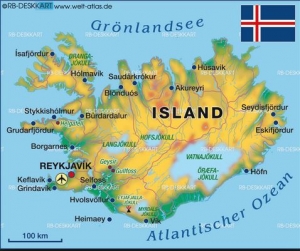[title size=”2″]Brazil[/title]
B.F. Skinner’s “Selection by Consequences” is now published in Portuguese in electronic form on the official website of Brazilian Journal of Behavioral and Cognitive Therapy. Translation was conducted by: Dr. Sergio Cirino, Paulo Guerra Soares, Carlos Cancado with the collaboration and support of professors of behavior analysis in Brazil, including Drs. Martha Hubner and Maria Teresa Silva.
Selecao Por Consequencias (PDF 64KB)
 Liason: Martha Hübner
Liason: Martha Hübner
Dr. Martha Hübner is one of the two B.F. Skinner Foundation’s Brazil Liaisons. She holds a Bachelors of Psychology from the Catholic University of São Paulo, Brazil, and a Masters of Science as well as a Doctorate from the University of São Paulo in Experimental Psychology. Currently, she is a professor at the University of São Paulo. Dr. Hübner is also President of the Brazilian ABA Branch (known in Brazil as the Brazilian Association of Behavioral Psychology and Medicine/ABPMC.)
Dr. Hübner ‘s goals as Brazilian Liaison for the B.F. Skinner Foundation include increasing the number of Skinner publications in the Portuguese language and disseminating Skinner’s ideas to the greater public and to the press.
 Liason: Maria Teresa Araujo Silva
Liason: Maria Teresa Araujo Silva
Maria Teresa Araújo Silva is one of the two B.F. Skinner Foundation’s Brazilian Liaisons. She received her Masters degree in Psychology from Teachers College at Columbia University. While at Columbia, Teresa had the pleasure of meeting Fred Keller, who coincidentally had just returned from a one year stay in Brazil.
Teresa believes that in the United States, the study of Skinnerian Science is more diversely studied and researched than in Brazil. However, according to Teresa, both the US and Brazil share a couple common problems. “There is difficulty in transmitting concepts that challenge the cultural view on freedom, decision making, and an initiator self,” explained Teresa. “Another difficulty is the scientific nature of the behavior language, which tends to build select groups of people who interact with each other but have trouble putting their views into accessible, everyday language.”
As one of the Foundation’s Brazil Liaisons, Teresa welcomes any project ideas, goals or suggestions.
[title size=”2″]Iceland[/title]
Liaison: Ragnar S. Ragnarsson
 Icelanders are a nation of 290.000 people. On August 15th 2004, 35 of them founded the Icelandic Association for Behavior Analysis (ICEABA). ICEABA’s purpose is to increase the influence of behavior analysis in Iceland and it is open to everyone willing to work towards its goals. Among the goals of ICEABA is to increase the number of students who get graduate degrees in behavior analysis; offer workshops and lectures; increase research; design a website about ICEABA and behavior analysis and create and maintain an Icelandic lexicon of behavior analytic terms. This last goal is important because it is public policy in Iceland to invent and use constructs in Icelandic instead of using terms from other languages with little or no modifications.
Icelanders are a nation of 290.000 people. On August 15th 2004, 35 of them founded the Icelandic Association for Behavior Analysis (ICEABA). ICEABA’s purpose is to increase the influence of behavior analysis in Iceland and it is open to everyone willing to work towards its goals. Among the goals of ICEABA is to increase the number of students who get graduate degrees in behavior analysis; offer workshops and lectures; increase research; design a website about ICEABA and behavior analysis and create and maintain an Icelandic lexicon of behavior analytic terms. This last goal is important because it is public policy in Iceland to invent and use constructs in Icelandic instead of using terms from other languages with little or no modifications.
Today, 13 Icelanders have a graduate degree in behavior analysis and 6 are currently studying in the field, abroad. The influence of behavior analysis is increasing because most of these graduates return to Iceland and start using behavior analysis at their workplace. Icelandic behavior analysts work in the private and public sectors; mainly in educational services and for people with disabilities. This group shares information on a listserve they founded in 1999. So far this list has generated 2100 letters.
Today, three universities have offered courses with behavior analytic content.
In 1974, undergraduates in psychology at the University of Iceland (UI) were for the first time required to take an introductory course in behavior analysis. Since 1985, an elective course in the research methods of behavior analysis has also been offered there. Some other undergraduate and graduate courses at the UI have heavy behavior analytic content. Last March, psychology students at the UI commemorated the 100th anniversary of B.F. Skinner’s birth with a one day symposium on behavior analysis. The symposium lectures will be published in a book. A SABA awarded website for Icelanders seeking information about graduate programs in behavior analysis was designed and is maintained by the only UI faculty member with a PhD in behavior analysis.
The Icelandic University of Education (IUE) offered a summer course in programmed instruction in 1975. This course was preceded with several instances of behavior analysis being introduced to students at that school and later with courses in behavior principles. Today, the influence of behavior analysis at the IUE is negligible.
The University of Reykjav’k (UR) is showing signs of exposing its students more to behavior analysis. Currently, organizational behavior management is a topic in some courses there. Two faculty members and the UR dean have PhDs in behavior analysis.
Icelandic behavior analysts have given talks, workshops, seminars and website consultation on various topics like child rearing methods; performance management; teaching methods and classroom management. Several articles on diverse behavior analytic topics have been published by Icelanders in domestic and foreign periodicals and journals like JEAB and JABA and in Icelandic newspapers. Since 1987, many prominent scientists of behavior analysis have given talks, lectures and workshops in Iceland.
Further information about behavior analysis in Iceland can be obtained from Ragnar S. Ragnarsson at irores@centrum.is
[title size=”2″]Italy[/title]
 Liaison: Paolo Taras
Liaison: Paolo Taras
Dr. Paolo Taras is liaison for the B. F. Skinner Foundation in Italy and is a passionate scholar of B. F. Skinner’s science. He earned his Doctorate Degree in Psychology at the University of Padua, Italy, and holds postgraduate Specialization Diplomas in Organizational Psychology and in Training Methodologies and Design. He is also member of the National Italian Order of Psychologists. Last year he was certified as an Instructor in Performance Management from A.D.I. International, Atlanta, USA. Since 1983, he has been active as a consultant in the field of Human Resources Management for primary consulting firms in Milan and Rome, and since 1998 he has been leading his own consulting firm, in partnership with a selected group of colleges. “We provide a set of consulting services aimed at developing human resources in a variety organizational environments such as Banks and Insurance companies; Manufacturing Firms; Public Institutions; and Telecommunication Companies. We specialize in designing and planning instruments for people management, including, for example, Potential Appraisal Systems especially through the Assessment Centre method, Organization check-up and analysis of Training needs, Managerial Training, Performance Appraisal, Organizational Change, culture and climate analysis, and focus groups.”
Dr. Taras contributes to the Foundation’s efforts to facilitate access to behavioral science in languages and in countries beyond the borders of the United States. Typically, the liaison connects others with the Foundation’s resources and works to establish a network of peers to share and promote practices based on the Skinner’s science. Dr. Taras’s leadership in the international community helps keep the academic and private sector of behaviorology visible outside the USA. More importantly, Dr. Taras, as do all the Foundation’s liaisons, helps to diminish the isolation of experimental behavior efforts in other countries. He was also instrumental in the plans for his associate Anna Luzi to visit the Foundation as a staff volunteer for the summer.
 Anna Luzi, 2009 Summer Intern
Anna Luzi, 2009 Summer Intern
Translated much of the website and Operants into Italian: Watch for new postings.
“The idea of coming over to the Foundation from Italy was the result of two concurrent wishes: to improve my English, mustering the courage to dive into action at last, and to know more fully the work of B.F. Skinner. In the last few years I assisted in some research matters with Paolo Taras, one of the International Liaisons of the Foundation, representing Italy, who is also a colleague of mine in the Organizational Consulting business in which we both work. He is an enthusiastic scholar of Skinner science and has inspired me to read and acquire knowledge of behavior analysis and the Skinnerian radical approach.”
[title size=”2″]Japan[/title]
Liaison: Naoko Sugiyama
[title size=”2″]Norway[/title]

Liaison:Per Holth
[title size=”2″]Russia[/title]
 Liaison: Alexandr Fedorov
Liaison: Alexandr Fedorov
Rephrasing the statement of James McKeen Cattell, the history of the Skinnerian science in Russia could be set forth as briefly as the alleged chapter on snakes in a natural history of Iceland – “There are no snakes in Iceland.”
Today, interest in theoretical problems of behavior analysis and its history at the Moscow State University, the most prominent university in Russia, is weak. The influence of radical behaviorism at the Novosibirsk State University is also of small account. Perhaps, one of the reasons for it is that there are only few translations of Skinner’s works in Russian. I know of only two. They are the fifth chapter from “Science and Human Behavior” and “The Science of Learning and the Art of Teaching”.
Skinner’s works are included in references only in three (!) articles of the journal “Voprosy Psychologii” [Issues of Psychology] over a period from 1992 till 2001. And it’s the oldest and the most readable scientific periodic Russian issue in psychology! In fact, the term “behaviorism” is often used in the past tense in Russia. For example, ABBYY Lingvo (the most popular dictionary software in Russia) elucidates the term “behaviorism” in the following way. “It is a school in psychology that lost its significance for humanity. But did behaviorism have significance at all?” How do you like that?
But against all the odds, we believe that Skinnerian science has a great future in Russia, the land of Sechenov, Pavlov and Bekhterev. We should combine efforts in promoting behaviorology to find “a future in which people will feel freer than ever before and achieve greater things” (Skinner, 1975).
[separator top=”40″ style=”single”]
1. Skinner, B. F. (1953). Science and human behavior (Chapter V. Operant behavior). New York: Macmillan.
/ Skinner, B. F. (2003). Nauka i chelovecheskoe povedenie (Glava 5. Operantnoe povedenie). In P.Y. Galperin, A.N. Zhdan (Eds.), Istoriya psihologii. XX vek (pp. 530-566) [History of psychology. XXth century: A textbook]. Moscow: Akademicheskiy Proekt. [First edition in 1986] /
2. Skinner, B. F. (1954). The science of learning and the art of teaching. Harvard Educational Review, 24, 86-97.
/ Skinner, B. F. (1968). Nauka ob uchenii i iskusstvo obucheniya. In Programmirovannoe obuchenie za rubezhom (pp. 32-46) [The programmed learning abroad]. Moskow: Vysshaya shkola.
[title size=”2″]South Korea[/title]
 Liason: Grace Mihyun Cho Ph.D., BCBA
Liason: Grace Mihyun Cho Ph.D., BCBA
Dept. Chair & Professor, Graduate School of Child Behavior Therapy
Director of South Korean Institute of Applied Behavior Analysis (SkiABA)
Nam Seoul University
Grace Cho, former Executive Director of Asian Pacific Community Services (APAC) in Los Angeles, received her doctorate from the University of California, Los Angeles in the field of Special Education. She is a Board Certified Behavior Analyst (BCBA). This past year, Dr. Cho was involved in establishing a Graduate ABA program at Namseoul University in Korea. In addition to her work at NSU, Dr. Cho has agreed to organize the project of translating the B.F. Skinner Foundation Newsletter, Operants, into Korean.
[separator top=”40″ style=”single”]
